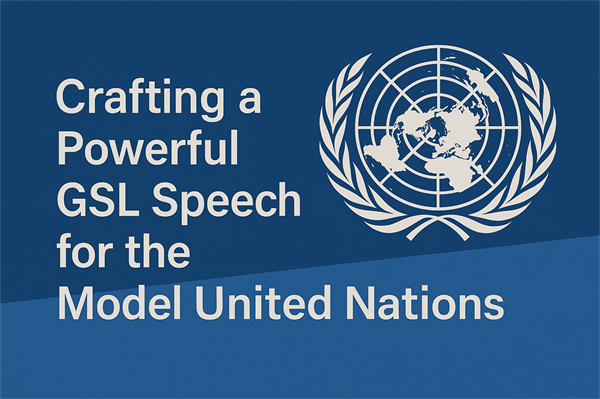How to Prepare for MUN Model United Nations
Participating in a Model United Nations (MUN) conference can be one of the most rewarding experiences for students interested in diplomacy, international relations, and public speaking. However, for beginners, the process can seem intimidating. From researching your country’s policies to writing position papers and delivering speeches, preparation is key to success. In this guide, we’ll walk you through how to prepare effectively for your next MUN conference.
1. Understand What MUN Is
Before diving into preparation, it’s essential to understand what MUN actually is. A Model United Nations is a simulation of the actual United Nations, where students act as delegates representing different countries. Each delegate debates global issues, drafts resolutions, and collaborates to find diplomatic solutions.
MUNs help participants develop critical skills such as research, communication, teamwork, and leadership. Whether you’re in high school or college, joining MUN is a great opportunity to enhance your understanding of world affairs and build confidence in public speaking.
2. Choose Your Committee and Country Wisely
Once you’ve registered for an MUN, you’ll be assigned a committee (like the UN General Assembly, WHO, or Security Council) and a country to represent. Sometimes, you may get to choose your preferences. It’s best to pick a committee that aligns with your interests or strengths. For example:
-
If you enjoy health or environmental issues, go for WHO or UNEP.
-
If you like security and politics, UNSC or DISEC might be ideal.
-
If you prefer development and human rights, UNDP or UNHRC are good options.
Once you know your assigned country and committee, start learning everything you can about them.
3. Research Thoroughly
Research is the backbone of MUN preparation. You need to understand both the agenda topic and your country’s stance on it. Here’s how to structure your research:
a. Learn About Your Country
-
Geography, population, and economy
-
Political structure and government
-
Allies and rival nations
-
Key exports, imports, and policies
b. Understand the Agenda
Study the main topic discussed in your committee. For example, if your agenda is “Climate Change and Global Cooperation,” you must know:
-
How climate change affects your country
-
What policies your government has implemented
-
What international treaties your country supports (like the Paris Agreement)
c. Find Reliable Sources
Use trustworthy resources like:
-
Official UN websites (un.org)
-
Government websites
-
News agencies like BBC, Reuters, or The Guardian
-
Research papers or NGO reports
Make detailed notes — they’ll help you when writing your position paper and speeches.
4. Write a Strong Position Paper
A position paper is a formal document that summarizes your country’s stance on the topic. It usually includes:
-
Introduction: Brief overview of the issue.
-
Country’s Position: How your country views the problem.
-
Proposed Solutions: What actions your country recommends.
Keep your position paper concise (usually one page). It shows the chair that you are well-prepared and understand both your country and the global issue.

Comments
Post a Comment